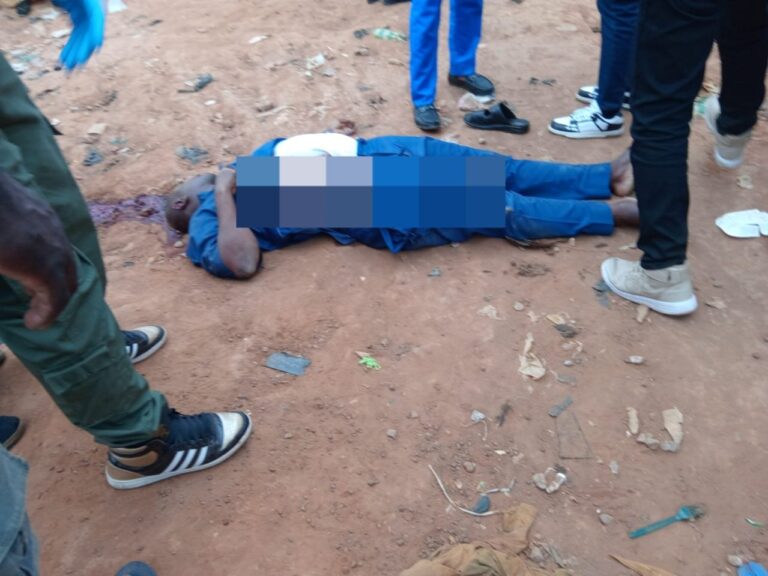By Alex Ababio, Investigative Desk –Ghanaian Watch
A chilling daytime execution has rattled the Asawase community in Kumasi, following the fatal shooting of a middle-aged man on Thursday, July 25. The brazen attack—carried out by two unidentified gunmen on a motorbike—has intensified public anxiety over what many residents now describe as a “wave of targeted killings.”
The victim, who is yet to be formally identified, was reportedly on his way to his parked car when the assailants pulled up and fired multiple rounds at close range. He died instantly, according to police and eyewitness accounts.
“They didn’t say a word—just drove up, fired, and sped off. It was like something out of a movie,” a stunned onlooker, who requested anonymity for safety reasons, told this reporter.
The attack occurred in a busy part of Asawase in broad daylight, triggering panic and confusion among traders and commuters. Minutes after the gunshots rang out, police arrived to cordon off the crime scene and begin preliminary investigations.
The Ashanti Regional Police Command has confirmed the incident, noting that a full-scale manhunt has been launched. “We are treating this as a high-priority case and are following several leads,” a spokesperson for the Command stated.
The killing is eerily similar to another motorbike-linked shooting earlier this week, which claimed the life of a well-known traditional leader in the same municipality.
“Our community is under siege,” said Alhaji Ibrahim Sulaiman, a local elder. “We are tired of the bloodshed. We need visible policing and serious action—not just promises.”
Residents have begun mounting pressure on Police authorities, citing a growing pattern of unsolved murders and inadequate police patrols.
“People are afraid to even walk around this vicinity. What kind of life is this?” a trader at the scene asked, shaking her head.
Security experts say the pattern of killings indicates organized planning, possibly linked to targeted violence or contract killings. Community leaders are calling for a coordinated response involving law enforcement, intelligence services, and neighborhood watch groups.
The Ghana Police Service has assured the public of intensified patrols and community engagement. However, critics argue that reactive measures will not be enough without long-term crime prevention strategies.
As investigations continue, the grieving community is demanding justice and swift arrests.
“This cannot become normal,” said a young man in Asawase. “We owe it to the victims and ourselves to stop this madness.”
With tension mounting, all eyes are now on the police and government to restore calm—and reclaim public confidence.

